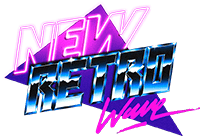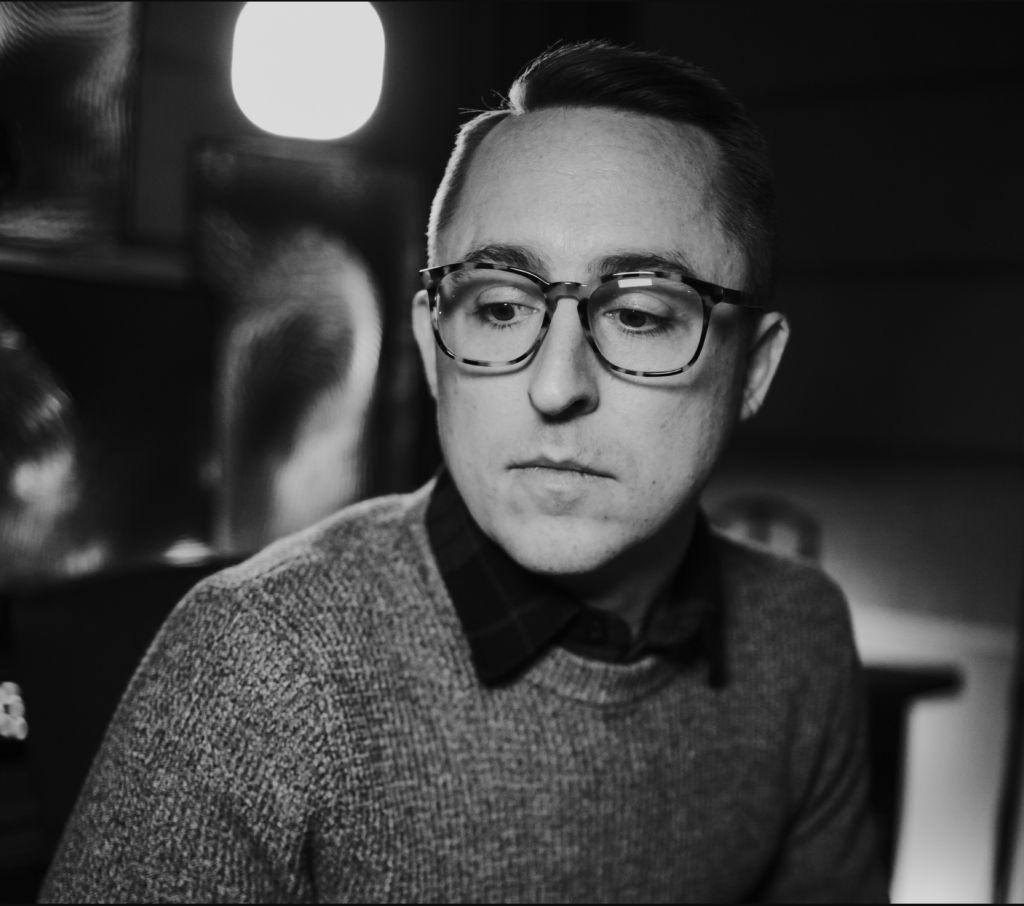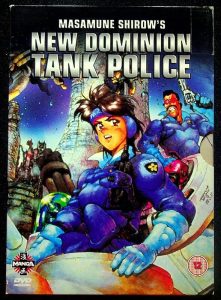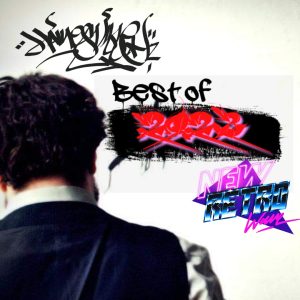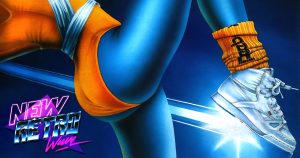Following the breakup of his band, William Ryan Key’s career path as a musical artist has been a particularly surprising one. Whereas many artists burdened by the weight of past successes will feel compelled to remain within their established circle, the former Yellowcard frontman is paving his way as a solo artist with a distinctly ambient, intimate approach to songwriting. With his third EP Everything Except Desire, longtime fans and followers will get the first taste of Ryan Key fully indulging in his long-standing passion for film scores and electronic music. The EP plays like a film short set in a colourful impressionistic landscape riddled by constellations of bokeh lights scattered behind a hazy screen. Every song is a scene, a place and a feeling that lulls you into its warm embrace. Enchanted by the artists’ newfound success in the ambient “synth-folk” style, we jumped on the occasion to pick the man’s brain and learn more about this surprising EP.
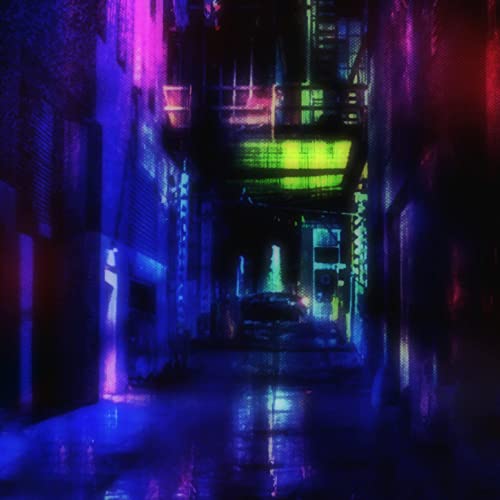
Before getting into the current EP which you’re about to release. I’d like to go back to the start of your career as a solo artist. Where were your musical goals and ambitions at as you moved on from Yellowcard to a solo career?
When Yellowcard first split up, I had been making plans. My original plan was to produce records for other artists, but I learned pretty quickly that it wasn’t necessarily where my heart was at, creatively. If I was going to put in hours and hours of hustling to create a new path for myself, that just wasn’t the way I wanted to go; going to shows five nights a week, doing the sales pitch to bands to get them to come in and work with you… It didn’t feel very fulfilling to me and everything just led me back to making my own music.
It really kickstarted when my buds in New Found Glory offered me a full US tour with them, as an opener and rhythm guitarist. They didn’t really specify what “opening” meant. They probably assumed I’d bring an acoustic guitar and play some Yellowcard songs and I did play some, but it was also a catalyst for me to think about having a record to sell at the merch booth. That’s what led me to record the first EP Thirteen. It was sort of a double-edged sword because I wanted something to have on the tour, but I also wanted to make something so far removed from Yellowcard and anything I’d done before that I knew the hard pop-punk fans on the tour were going to be weirded out. I could’ve leaned harder in the sounds of the past, but I decided to stick with what I thought was right. It was an EP of very stripped down, ambient acoustic tracks. It was hit-or-miss on the New Found Glory tour, for sure [laugh]. There were some nights that were really cool and some nights where I couldn’t hear myself playing because everyone was talking over what I was doing and totally uninterested. I was mentally prepared for that, though.
I started getting some more opportunities to tour, which led me to record a second EP, Virtue. That record took me all over the world and I got to open for Mayday Parade on a full US tour. I also did one solo headlining tour. At the end of all of it, I had to take stock of how much work I was doing to stay on the road and be touring full time versus the return and growth that was happening with it. The pandemic hit around the same time, forcing me off the road. During that time, I really honed in and focused on what I wanted to do, where I want to go.
I really have a desire to move into scoring for film and television, and you can hear the cinematic elements on Everything Except Desire because it’s the first time I didn’t have to consider touring. I was able to cut loose and let all of my influences, which have been primarily electronic, experimental, EDM… It’s been that way for many years, much more than rock n’ roll. I was able to experiment and not worry about how it would tour. Maybe I will play some shows with it, but what it has really done for me is get the ball rolling with a few tracks. I’m constantly creating now. I’m in my studio every day, practising scoring, creating ambient pieces and doing as much as I can to build a collection of songs to show to people and get closer to the goal of scoring film and TV. I think the sound of the EP was very much done with that in mind. I tried to think in a cinematic sense. It’s very movement-driven and I wanted it to feel like the EP had “scenes” that were developing and changing. Being forced into staying at home and working on these tracks really opened a floodgate for me and I’m in a totally new place, musically. I really enjoy what I’m doing and what I’m working towards.
How would you describe this EP if you were to translate it into visual form?
As electronic music does, the whole thing has a certain “pulse” to it. A good example of seeing it visualized is the music video for ‘Face in a Frame’, directed by Stefano Bertelli (Seenfilm : www.seenfilm.com ). The way he used light flares and flashes is one good way to describe it. It’s got pulsing flourishes of light. I tried to make it very colourful with the sounds that I was choosing and the layers that I was adding. I’ve had a lot of experience in the last few years working in the space of electronic music. My close friend Ryan Mendez from Yellowcard and I have been working on a project called JEDHA, which is strictly instrumental experimental EDM. I’ve had a lot of experience working with him building these big, lush soundscapes. This was the opportunity for me to translate a lot of that experience into my solo stuff. My favourite song on the record is the last song ‘Union Chapel’, and one of my favourite moments on the record is when the bass and kick hit at the end of the song to take you out after you had been lost in the trance of the piano arpeggio. It may be a cliché visual, but it does feel like this warm blanket that comes over you at the end of the EP, to cruise you out at the end of your journey.
Back in 2014, you released the album Lift A Sail, which marked quite a departure from Yellowcard’s established sound through its inclusion of electronic elements. Looking back, how did that experience affect your approach to writing electronic music?
That is my favourite Yellowcard record, contrary to popular opinion [laugh]. It’s a very personal record for me and it was a time when my musical palette was shifting so dramatically away from Rock n’ Roll and into Post Rock and ambient EDM. Ryan Mendez has had such a cool, broad palette of musical influences from a very young age. He’s into original Aphex Twin and old Daft Punk. I, on the other hand, grew up fully as a rock n’ roll fan that I had a stigma connected to electronic music, like many people I’ve talked to still have. It still exists. There’s still an idea that it’s not made with ‘real instruments’, and I was that way for a long time too.
Around the time of Viva La Vida, Coldplay started working with Jon Hopkins, and Ryan Mendez is a huge, longtime fan of him. Around that time, Ryan helped me connect the dots from Coldplay to Jon Hopkins by giving me a copy of Immunity. I had never heard and seen a piece of music like the title track on that Jon Hopkins. It just changed my whole perception of electronic composition. It changed everything for me. I started asking for more recommendations went down the rabbit hole of playlists and recommended artists. That all led to Lift a Sail. I was so inspired by these influences but we still had to make a rock record.
Ryan being the more knowledgeable person in the world of electronic music, we tasked each other with him writing the nastiest riffs for the intros and choruses whereas I was in ‘Studio B’ pressing buttons. I was building loops, experimenting with sub-bass and all kinds of stuff I had never done to use for the less intense sections of the songs on the album. I played almost no guitar on that album. I spent most of that record writing lyrics and producing my first ever loop and beats. We ended up with this interesting hybrid record that no one really understood [laugh], but we loved it and I still love it! It was the first record that felt like I was genuinely standing on my own two feet as a writer, as opposed to writing within a genre. I don’t want to minimize or say that the records don’t have value, it’s just that there was this undeniable shift that happened with Lift a Sail. When Yellowcard broke up, Ryan and I immediately decided to make electronic music together. Four years later, we’ve just finished a full-length record, we’re doing a remix for a big band and we’ve been hired to score the first season of a new show for a massive brand. It’s starting to happen for us! It’s funny that you mention Lift a Sail, I appreciate it because that is where it started for me, from a writing and production standpoint.
The first thing that struck me on the album, compositionally, is the heavy emphasis on ambience and space. Vocals are sparse, the arrangements feel quite stripped down and you really give each idea the breathing space it needs.
I owe a lot of what you’re picking up on to the artists that I listen to. I’ve been on a crash course of learning how to make great music through their albums and learning how to create that sense of space. Part of what you’re sensing comes from two things. First, there’s the way the EP was composed in the middle of that summer during the pandemic and I was by myself in the studio, very focused on this specific batch of songs. The songs do feel like they grew up from the same roots. Secondly, there’s the cinematic element of it that I’ve been learning as I’ve worked towards this goal. I pay attention to what showrunners, music directors and editors are looking for. While this wasn’t something that I was writing for a show or a film, I was conscious of how hand in hand this type of ambient electronic music goes with visuals. I wanted to make sure that each song would rise to these places and take moments to breathe because when an editor is looking at a waveform, they’ll just delete the message if the waveform doesn’t look right.
You’ve lived in quite a lot of different places. You’ve been moving around!
Too much! I even lived in Osaka for about two months when I was producing a record in 2019. I left home when I was 19 for the first time to go to California with a band I was playing in. I went home, ended up playing in Yellowcard, moved back to California for a couple of years before going to Manhattan for a year. I moved back to California again… My family is on the east coast and my job was on the west coast, so I struggled throughout my life to find where I’m going to settle. And here I am moving again!
As an album that has such a strong sense of space, would it be fair to say that location physically affects the places you end up emotionally and how you express them?
Being so nomadic has always inspired my music. It’s helped me as a creator to have new experiences in new places, meeting new people, new people, new bars … it’s always helped me not get stuck in rut as a writer. When my environment is constantly changing it helps my music change as well. I think it’s particularly true for this EP because it was made during such an unsettling time. I was feeling very unsure because I would normally try to do is knock out one or two tours a year, which provides me with the opportunity to be home working on scoring and composing, which isn’t paying me yet. I’m just making stuff right now and hoping that someday it will go somewhere. When the lockdown happened, I was in California and had no place to go and I was freaking out, so I moved back to Florida for a bit. As a result, this EP has so much exploration of self in it. There’s not much storytelling, it’s really about self-reflection. I had to make a choice when I got to Florida to wallow in this stress, anxiety, sadness and fear, or turn it into something good. At the beginning of the pandemic and before leaving for Florida, a lifelong friend of mine got stuck at my house with me in California for a whole month. He’s very active and expresses to everyone he knows how important meditation is in his life, so I started doing it with him. It was the key to my success through the pandemic. When I got to Florida, I was really bummed, I was excited to live in LA again and start to work towards film composing, and here I was back at square one. So meditation really helped me to let those thoughts pass through and not let them consume me and direct my path. This allowed me to compose with such a clear mind. Had I not gone through those moves and those shifts, I wouldn’t have had those dark thoughts to overcome which poured into this record. I think it’s always been a part of me as a songwriter. Maybe even more so now than ever.
Was it a particular challenge to distil your thoughts into so few words for this record or was it a natural byproduct of the songwriting process?
I think it fits into what we were talking about with JEDHA. We’ve learned so much about restraint and refining a loop or synth melody so much that it’s all that it needs to be, it doesn’t need to change later or have another layer added. Vocally, there was very much a sense that I didn’t need to add any more. There’s peace in this. ‘Face in a Frame’ is such a different style of writing for me; to have the same verse happen twice in a song. It felt right, like the things I was learning about composing this style of music bled over into the vocals, using them more as an instrument than a “storytelling element” in a song. I was pretty conscious of that, yeah.
You’ve stated before that you’ve been a fan of video games for a long time. Yellowcard’s music has even been featured in a number of videogames throughout the years and you’ve done a couple of gaming streams over Twitch. What are some of the games you grew up playing? Have you ever been into a game that happened to feature one of your songs?
As a lucky kid, I never wanted for anything. I wasn’t spoilt rotten, but I had a great life as a kid and I had a Nintendo. I’m an eighties kid and I was the prime age for the NES when it came out. That said, I was such an imaginative, theatrical, outdoors kind of kid that I didn’t play the Nintendo anywhere near as much as other kids around me. I loved it but it was never my instinct. I was more of a worldbuilding imaginative type of kid, acting out movies I liked and stuff. I wasn’t so much into Mario at all. I loved Kung-Fu, I loved Contra and I loved The Legend of Zelda. I didn’t get the SNES but I got a Sega Genesis and so I was obsessed with Sonic the Hedgehog. Then came the N64 with Ocarina of Time, the most iconic game of all time. I actually played it at a buddy’s house a month ago, along with Goldeneye! I still have memories of sitting on the floor with friends and playing 4-way split-screen Goldeneye. Those were the glory days! After that, I’ve been an Xbox player. We got free Xboxes. One of our songs was featured in SSX3, so they gave us consoles to be able to play it. That was when I got back into gaming after high school. The thing about gaming now is that I never got into competitive online gaming because I was on tour and we never had Internet. For a long time, we played video games all the time. We had consoles on the bus and that was a huge time passing activity. FIFA tournaments were bloodthirsty! It was so hardcore! With the pandemic, my social interaction throughout the lockdown was playing Call of Duty with other band friends. I was dragged into it because I thought I’d be terrible at it, but it became more about the hang, spending time with friends. In turn, I actually became addicted to it. I’m actually trying to ration what days of the week I let myself get on a game because I love it. I’m a PC gamer now and I think my favourite game now is Warzone. I also really got into F1 Racing. I want to get a racing rig in my new house if I can and be able to race with an ultrawide setup [laugh]. I love it! So I was a spotty, touch-and-go gamer throughout my life.
Closing off, can you name one of your favourite albums, movies and books?
I’ll go with the pandemic theme. First, Some Kind of Peace by Ólafur Arnalds has been a sanctuary for me. I still listen to it regularly. All of his work is incredible. He made the record during the pandemic and had to work with the string players at a distance and whatnot. You can really feel the solitude in the recordings.
For books, I’m actually reading Dune right now and I’m obsessed! It’s the fastest I’ve ever read a 600-page book in my life. If I’m thinking all-time favourites, I think I’d have to say The Road by Cormac McCarthy. I think I read that book on one cross-country flight. I’ve read it several times since.
For movies, I’m not allowed to say Star Wars. It can’t count. I’m going to go with what I think is one of the greatest feats of filmmaking in History. I’m much more of a film person than a book person. I think the greatest film is Schindler’s List. I just can’t think of a film that carries more weight and is more beautifully shot. It perfectly encompasses everything a film is supposed to do. It’s heartbreaking, it’s funny, it’s beautiful… the script is incredible and the score is unbelievable.
Everything Except Desire is out now on all streaming platforms.
